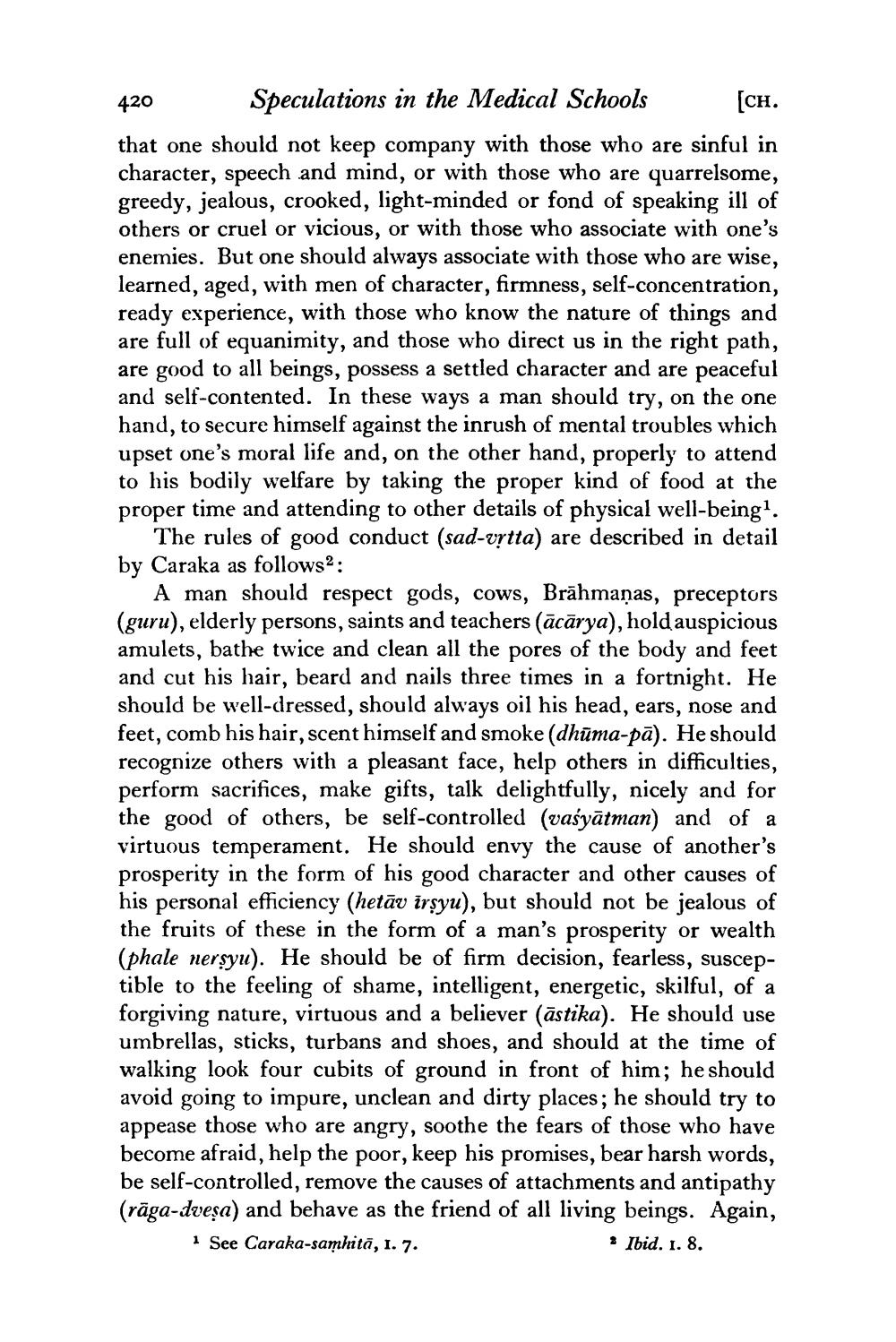________________
420
Speculations in the Medical Schools
[CH.
that one should not keep company with those who are sinful in character, speech and mind, or with those who are quarrelsome, greedy, jealous, crooked, light-minded or fond of speaking ill of others or cruel or vicious, or with those who associate with one's enemies. But one should always associate with those who are wise, learned, aged, with men of character, firmness, self-concentration, ready experience, with those who know the nature of things and are full of equanimity, and those who direct us in the right path, are good to all beings, possess a settled character and are peaceful and self-contented. In these ways a man should try, on the one hand, to secure himself against the inrush of mental troubles which upset one's moral life and, on the other hand, properly to attend to his bodily welfare by taking the proper kind of food at the proper time and attending to other details of physical well-being1. The rules of good conduct (sad-vṛtta) are described in detail by Caraka as follows2:
A man should respect gods, cows, Brāhmaṇas, preceptors (guru), elderly persons, saints and teachers (ācārya), hold auspicious amulets, bathe twice and clean all the pores of the body and feet and cut his hair, beard and nails three times in a fortnight. He should be well-dressed, should always oil his head, ears, nose and feet, comb his hair, scent himself and smoke (dhūma-pā). He should recognize others with a pleasant face, help others in difficulties, perform sacrifices, make gifts, talk delightfully, nicely and for the good of others, be self-controlled (vasyatman) and of a virtuous temperament. He should envy the cause of another's prosperity in the form of his good character and other causes of his personal efficiency (hetāv irṣyu), but should not be jealous of the fruits of these in the form of a man's prosperity or wealth (phale nerṣyu). He should be of firm decision, fearless, susceptible to the feeling of shame, intelligent, energetic, skilful, of a forgiving nature, virtuous and a believer (āstika). He should use umbrellas, sticks, turbans and shoes, and should at the time of walking look four cubits of ground in front of him; he should avoid going to impure, unclean and dirty places; he should try to appease those who are angry, soothe the fears of those who have become afraid, help the poor, keep his promises, bear harsh words, be self-controlled, remove the causes of attachments and antipathy (rāga-dveṣa) and behave as the friend of all living beings. Again, 2 Ibid. 1. 8.
1 See Caraka-samhita, 1. 7.




